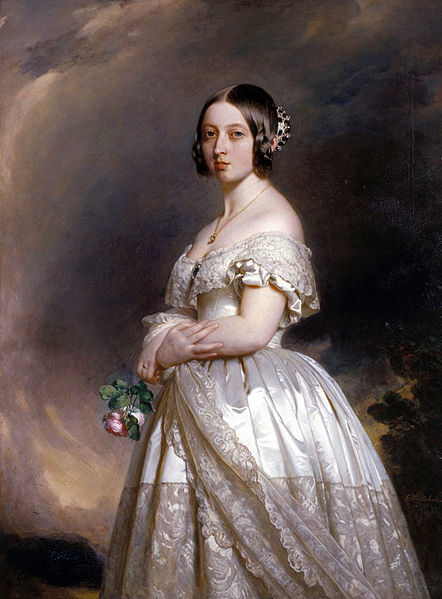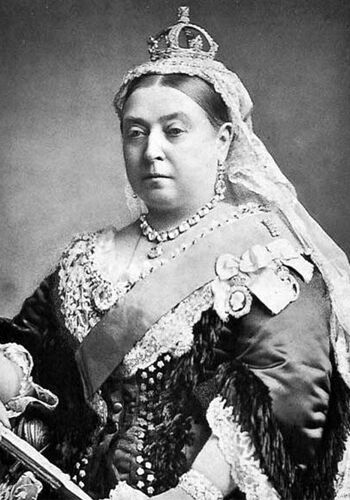Victoria was Queen of England, Ireland, Canada, Australia and Empress of India. By the end of her life, her empire was so vast that it encompassed 1/5 of the world's territory. Her reign of 63 years is the second longest, after that of Queen Elizabeth II.
Victoria acceded to the throne at the age of 18, succeeding her uncle William IV. In 1840, she married her cousin, Prince Albert of Saxe-Coburg and Gotha. Together, they had nine children. As these children married into noble or royal families, Victoria became known as "the grandmother of Europe".
Under her influence, the United Kingdom underwent major social, economic and technological changes. Her era is known as the Victorian era. The cities of Victoriaville, Quebec, and Victoria, capital of British Columbia, are named in her honor. From 1832 to her death, she kept a diary, eventually containing 122 volumes.

The young Queen Victoria, around 1842

Queen Victoria around 1886
-
1819: Victoria is born on May 24 at Kensington Palace, London.
-
1837: On June 20, the young Victoria was awakened at dawn by a visit from the Archbishop of Canterbury and Lord Conyngham. They came to tell her that King William IV had died. Victoria is therefore the new queen.
-
1838: Victoria is crowned. She is the first sovereign to live in Buckingham Palace.
-
1840: Prince Albert and Queen Victoria are married at St. James's Palace in London.
-
1840: While pregnant with her first child, Victoria is the victim of an assassination attempt. Six more attempts were made during her reign.
-
1843: Prince Albert and Queen Victoria travel to France to meet King Louis-Philippe 1st. This diplomatic visit, aimed at improving relations between the two countries, is the first in 323 years.
-
1845: Victoria buys the Isle of Wight, where she goes into exile for a year in 1848, when rebellions against royalty sweep across Europe.
-
1851: Following an initiative by Prince Albert, England organizes the first Universal Exhibition in London.
-
1856: The Victoria Cross is created to reward acts of bravery. It is the highest military award in the Commonwealth.
-
1857: The Queen decreed Ottawa the new capital of the United Province of Canada, putting an end to the conflict between the cities of Toronto and Montreal.
-
1861: Prince Albert dies of typhoid fever on December 14. Victoria is devastated. She wears black clothes for the rest of her life.
-
1901: Queen Victoria dies on January 22 on the Isle of Wight.